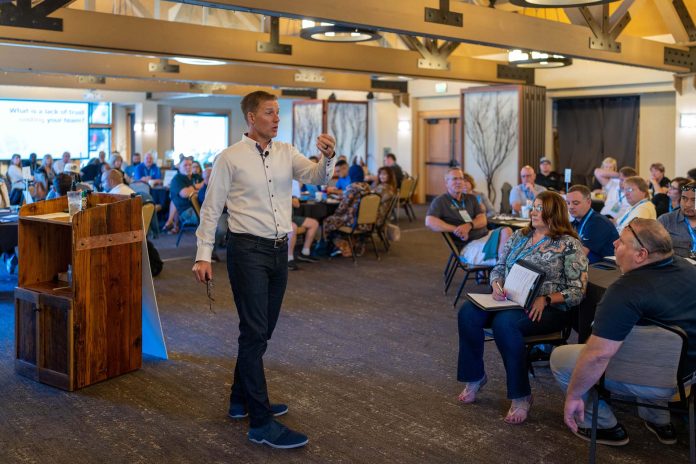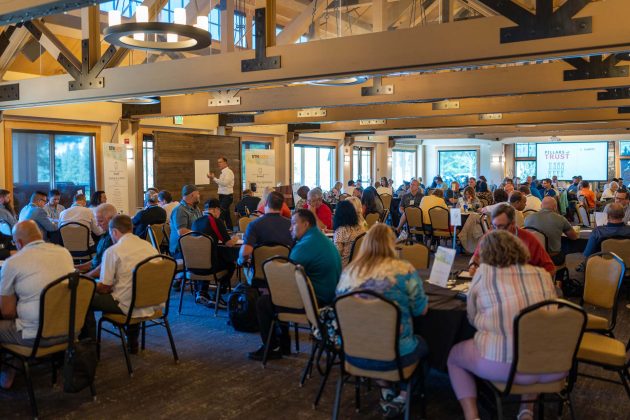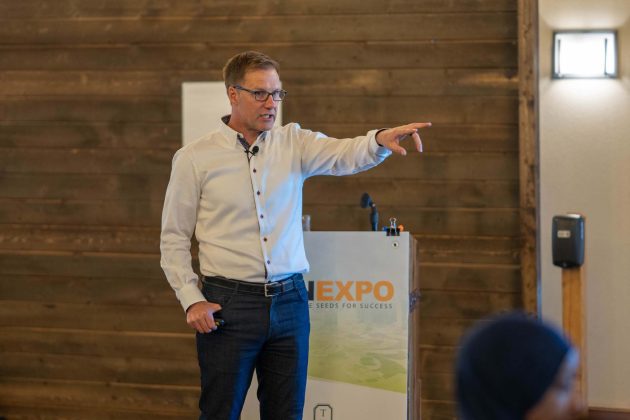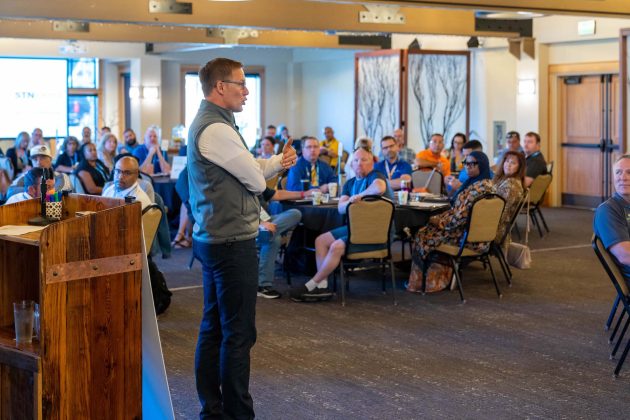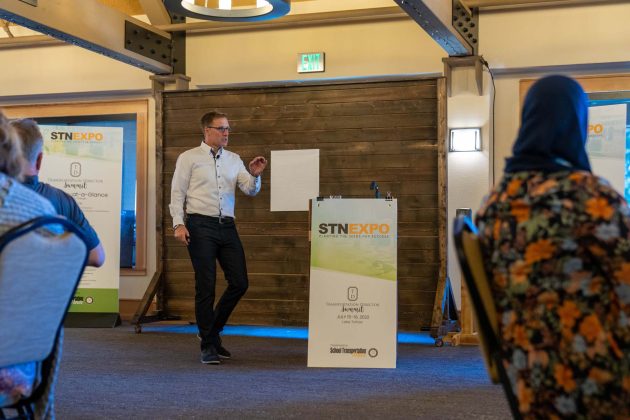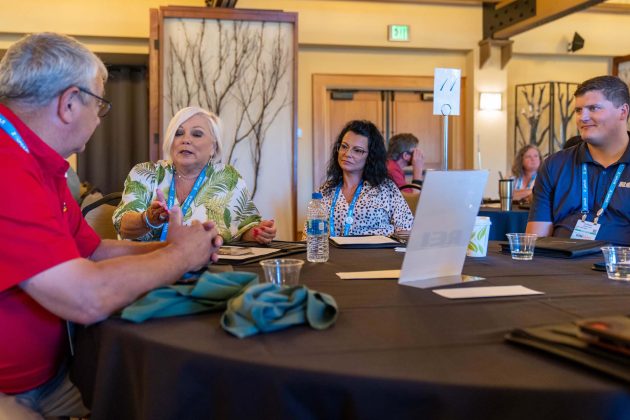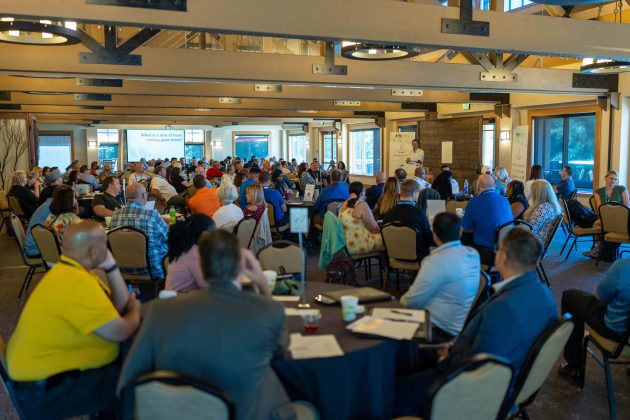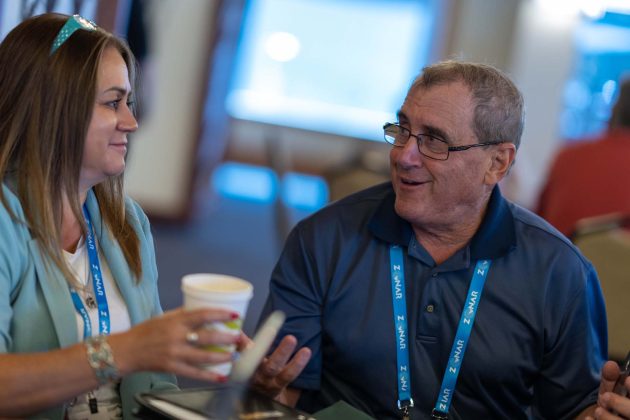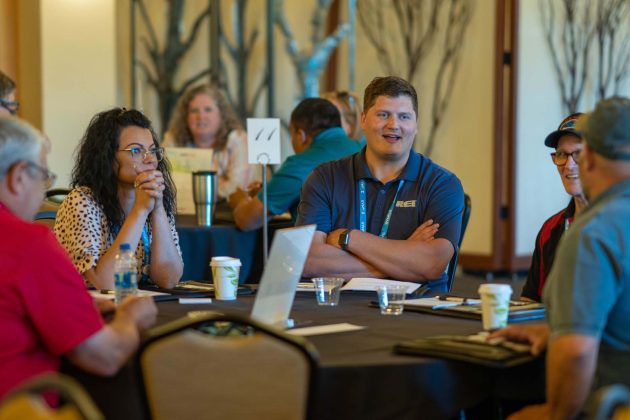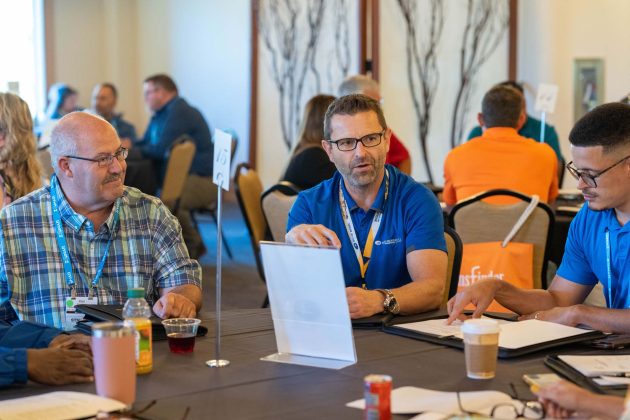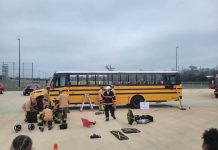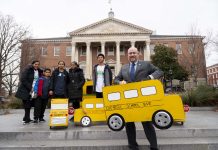SOUTH LAKE TAHOE, Calif. – “A lack of trust is the biggest expense you have,” worldwide trainer and bestselling author David Horsager told Transportation Director Summit attendees on Saturday at The Chateau at The Village. “Trust is your currency in business and life.” He drew from his experience growing up and working on a farm to bring to life the concepts he discussed during the all-day leadership training.
He reviewed how trust has taken a hit across almost every sector of life. He asked the groups of transportation directors and vendor partners gathered to think about why they would or would not trust someone. They also identified some of the things an untrustworthy school bus driver could cost a school district, including confidence, time, money and community relationships.
Horsager recounted research showing that as trust grows, learning, safety, connections, engagement, peace and job satisfaction increase. Meanwhile, disrespect, stress, costs, wasted time, miscommunication and poor behavior decrease.
The number one trusted person in the world isn’t Oprah or the Pope, Horsager told the attendees. It’s Mom, a fact that drew murmurs of assent from the room. But key to a trusted leader is the team that helps perfect the offering, illustrated through inventions like the lightbulb or the cotton gin that are attributed to one person but were in fact developed by a team.
The Eight Pillars of Trust
Horsager’s research across six continents revealed eight main pillars of trust: clarity, compassion, character, competency, commitment, connection, contribution and consistency – all of which work together. He elaborated on several.
Clarity – “You have the greatest opportunity to build or lose trust in a crisis,” he said, raising memories of how the pupil transportation industry pivoted almost week-by-week during the height of the COVID-19 pandemic. He advised leaders to be appraised of everything around them but focus on what they can control through strategic, actionable clarity.
Related: School Bus Meal Program Fosters Community Connections Throughout Indiana County
Related: Illinois School District, Contractors Deliver Meals to Students
Related: Meal Deliveries Via the School Bus Continue Throughout Virtual Learning
Related: (STN Podcast E77) Discussions Continue: Mask Mandates, COVID Precautions & A Return to School
Related: School Bus Routing to Meet Today’s Coronavirus Challenges
Compassion – A study showed that people in a negative atmosphere, whether they were directly on the receiving end of belittlement or simply witnessing it, were 20 to 30 percent less effective in problem-solving and bringing forward new ideas. Horsager advised leaders to step up and keep the culture positive.
“You don’t have to be perfect, but people can tell when you love them. The community can tell, the kids can tell,” he noted. With the number one reason that people leave a workplace being lack of appreciation, Horsager underscored the power of specific, personalized praise.
One such example was when he helped gather and stack hay into an outstanding 12 bales in one day with his father, backbreaking work but necessitated by impending rain. “Look what your son did,” was his father’s praise voiced to Horsager’s mother, when returning with the fruits of their labor to their home – high praise for a boy of 14.
Competency – Horsager related the example of a fishing expedition gone awry and how he had to use his knowledge to decisively pull a fishhook out of a friend’s hand. He got all the training participants to pair off and share something they’re doing to stay fresh, relevant and capable.
If there’s a problem with the operation’s output, the issue can usually be traced back to the input, which is why both personal development and employee training are crucial.
Commitment – “It’s hard to have a high-trust culture without healthy accountability, which includes ramifications,” Horsager explained. A successful operation has clear goals, metrics, and results. A good leader will delegate and support their people in a healthy way so as not to be lazy.
Related: TD Summit Attendees Learn Leadership Lessons From the World of Sports
Related: Transportation Directors Trained on Leadership in Uncertain Times
Related: TD Summit Attendees Discuss Student Absenteeism, Transportation’s Role
Connection – People tend to want to work with people who are similar to them, but better decisions result from diverse pools, Horsager said. Leaders who display gratitude and transparency also connect better with their teams.
He led attendees in filling out Trust Shield templates with information about their backgrounds and values, after which they shared some of that information with a fellow attendee. When we know each other, we can be more understanding and provide better accountability, Horsager said. It’s hard work to be transparent and connect but it results in increased trust, better relationships and stronger teams, he summarized.
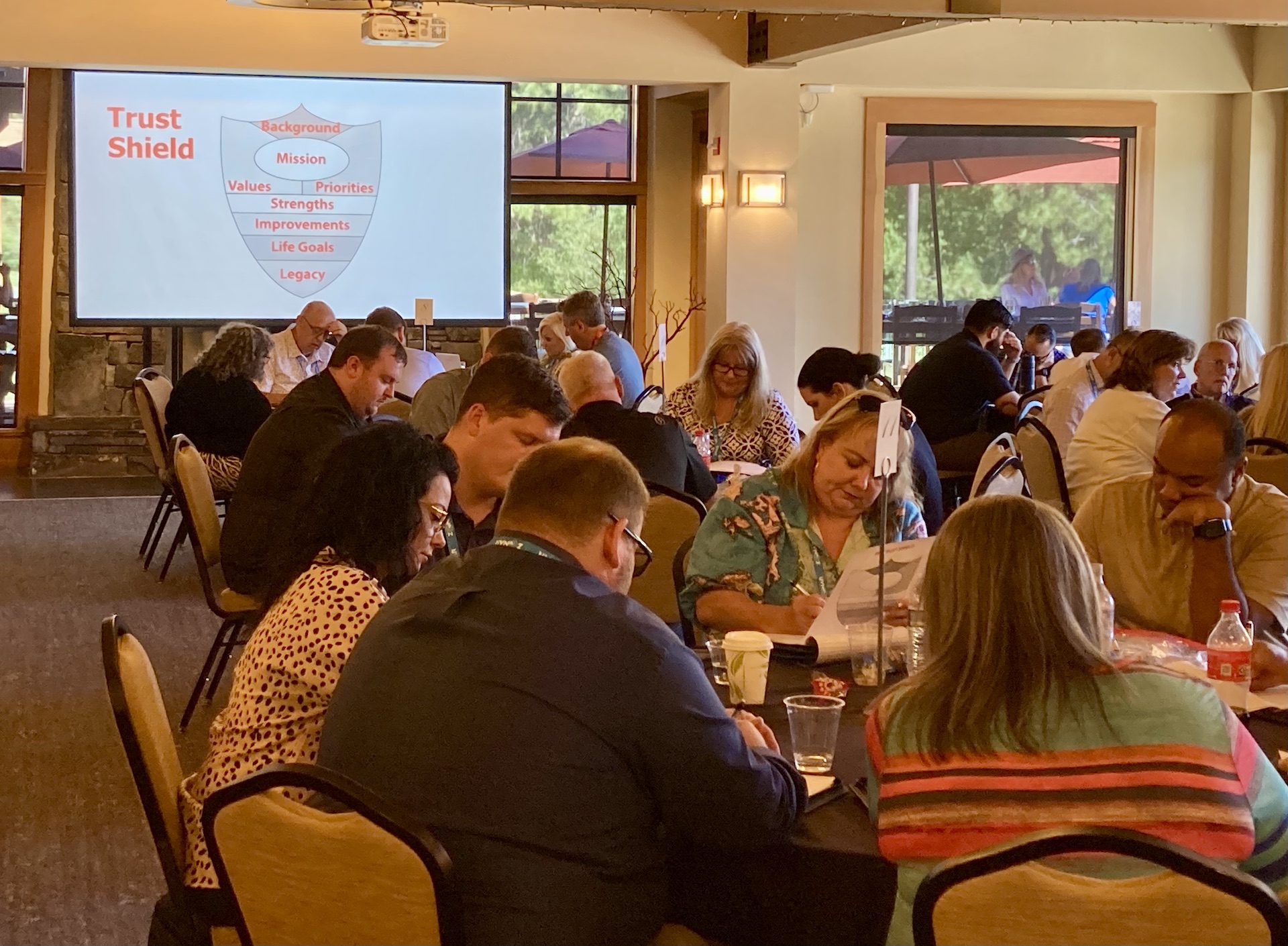
Horsager recounted the time he took a nasty spill off a horse that spooked, but through his tears he took his father’s encouragement to get back on the horse. Through the past few years of COVID-19, changing regulations, challenging school boards, driver retention struggles, supply chain shortages and more, student transporters have continually gotten back on the horse – and they can do it again.
Photos by Vincent Rios Creative.


